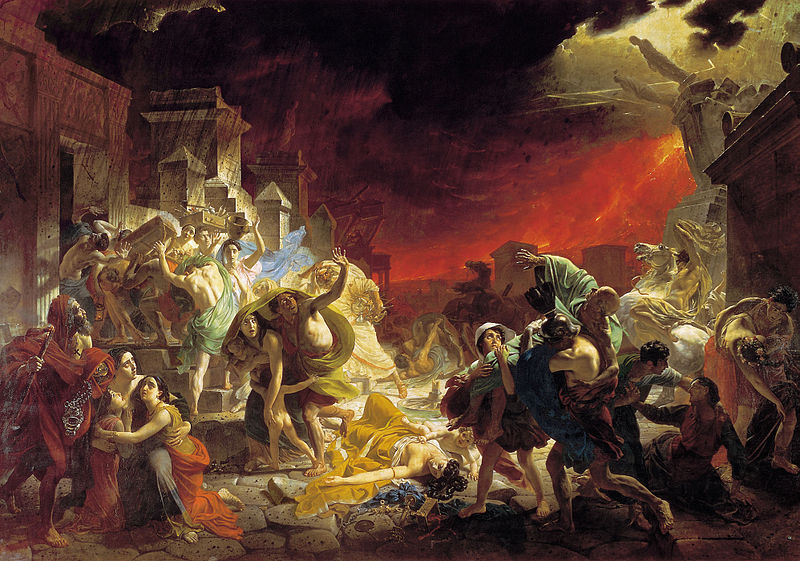
> Baron Edward Bulwer-Lytton
> was a Victorian aristocrat,
> a friend of Dickens.
> His family home was a huge mansion
> that can be seen today as a location
> for BBC costume dramas.
> Lytton's prose was so bad
> that modern literary critics
> named a Bad Writing prize after him,
> the Bulwer-Lytton [Bad] Fiction Contest.
> Family conflict & money problems
> forced Lytton to crank out popular novels
> at breakneck speed
> in a flowery Victorian style.
> He desperately needed a copy editor.
> Most of those books have been justifiably forgotten.
> But one book turned out to be phenomenally popular:
> The Last Days of Pompeii, 1834.
> Despite Lytton's usual clunky style,
> the characters and setting are memorable,
> especially Nydia, the blind flower-girl.
> It didn't hurt that
> around the time of publication,
> the world was fascinated
> by the ongoing excavations at Pompeii.
> Operas, plays, movies, novels
> were created retelling Lytton's story,
> a simple cosmopolitan love triangle played out
> amid ethnic and religious conflict,
> with all the players oblivious
> to the looming volcanic disaster.
> An American sculptor
> made a statue
> of Blind Nydia stumbling through
> the volcanic darkness --
> and it was the most popular statue
> in 19th century America.
> A Russian artist painted a huge canvas
> showing citizens fleeting as the city collapses.
> So how did this book
> shake me out of my reading slump?
> Perhaps because I couldn't read it for
> more than ten minutes before its verbosiy
> put me to sleep.
> But somehow the rip-roaring plot and characters
> kept me going.
>